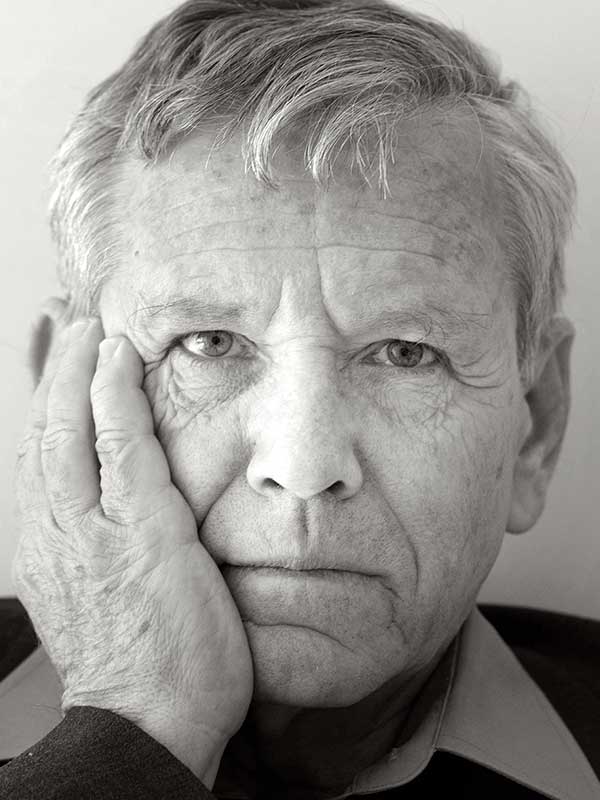By Tali Feinberg
To many people, Amos Oz was the father of contemporary Israeli literature, and an integral part of the story of the Jewish State. An iconic writer, novelist, educator and activist he passed away suddenly on 28 December at the age of 79.
Born Amos Klausner in 1939, he was the only child of a couple who fled Europe and settled in Jerusalem. He wrote that his parents “dreamed in Yiddish, conversed in Russian and Polish, read books in German and English but taught him only one language: Hebrew.”
It was this language that would define his life’s work, for it was from Hebrew that his characters, stories and seminal essays would emerge. He even invented new Hebrew words, and when his work was translated, it maintained an essential Hebrew character.
Oz witnessed the birth of the Jewish State in 1948, when he was just 8 years old, which he describes in his memoir A Tale of Love and Darkness: “My father said to me on the night of 29th November 1947, me riding on his shoulders among the rings of dancers and merrymakers… Just you look my boy, take a very good look son, take it all in, because you won’t forget this night til your dying day.”
Oz endured the suicide of his mother at the age of 12. Two years later he rebelled against his conservative family and went to live on Kibbutz Hulda, where he worked the land and began to write.
It was there that he changed his surname from Klausner to Oz, meaning ‘strength’ in Hebrew. And it was there that he was buried last month, demonstrating how profoundly the kibbutz had impacted his life. His first book, When the Jackals Howl, is set in this space, and it brings the tiny details and despairs of kibbutz life out into the light.
Dozens of novels followed — each one mesmerising, luminescent and Israeli in its essence. Over the next five decades, his books would be translated into 45 languages, and he received dozens of awards and accolades.
A Tale of Love and Darkness was Oz’s greatest work, said fellow Israeli novelist David Grossman. “It’s not only his autobiography, but in a way the biography of Israel even before it was created.”
As a witness to the life, development and growth of the Jewish State, Oz was both one of its strongest supporters, and critics. Like a parent raising an unruly toddler or a teenager testing the boundaries, Oz critiqued Israel from a place of love, wanting his homeland become the best version of itself, and hoping that it would reach its full potential.
While cynics and doomsayers cried the ‘death-knell’ of the two-state solution, Oz held on even firmer to that vision. Until the end, he always believed Israel should live up to its mandate as ‘a light unto the nations.’ And as the conflict grew ever more complex, Oz explained it in the simplest of terms, providing a glimmer of hope to even the most jaded observers.
“The Israeli-Palestinian conflict is not a Wild West movie,” he wrote in 2003. “It is not a struggle between good and evil, rather it is a tragedy in the ancient and most precise sense of the word: a clash between right and right, a clash between one very powerful, deep and convincing claim and another no less convincing, no less powerful, no less humane claim.”
He added that this could end like a Shakespearean tragedy, when the stage is littered with dead bodies but some kind of justice prevails, or with everyone unhappy, and making compromises — but alive. He always advocated for the latter.
Israeli president Reuven Rivlin, called Oz ‘our greatest writer’ and ‘a giant of the spirit’, while others have described him as a prophet, a king and a saint. But in the end he was an ordinary man capturing the lives of everyday Israelis.
He saw this as sacred work, because he explained that putting yourself in the shoes of ‘the other’ means you are forced to understand him. He believed that writing and literature were a vital way of bringing people together and healing societies.
It is tragic that this man of peace never saw an end to the Israeli-Palestinian conflict, but at the same time, his wise words, distilled on the page, are a guide that can be followed. Throughout his life, he implored the leadership on both sides to make courageous decisions. As he wrote, “the patient is ready for the operation — it is the doctors that are too afraid to do the surgery.” To honour his legacy, we should ensure that Israel is truly at peace, and use words to find our way there.











